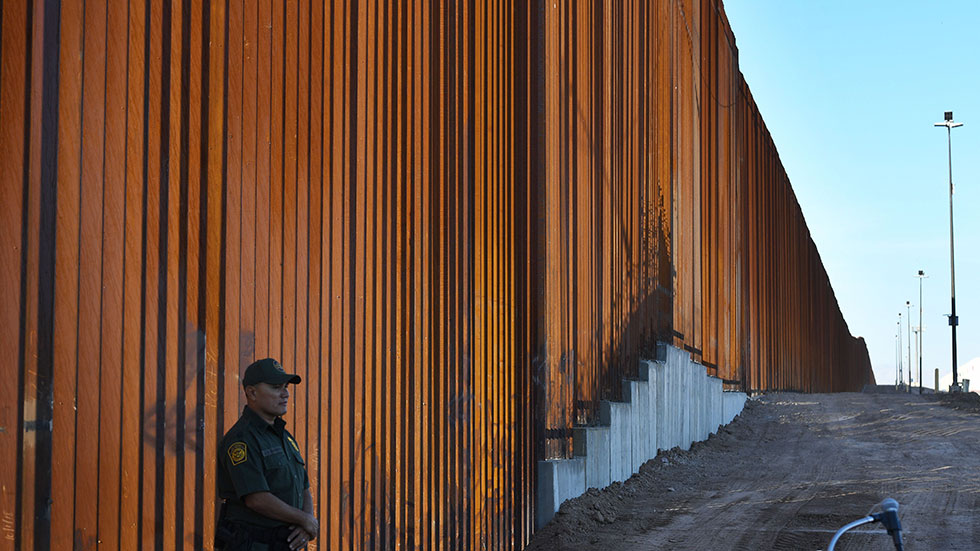Sometimes a squabble is about a principle, a comprehensive and fundamental law, doctrine, or assumption. Other times it is about a principal, a person who has controlling authority or is in a leading position. Occasionally a squabble is about principle on one side and principal on the other. Such is the case with respect to the border wall and the government shutdown. My assertion to you is that in decision making the issues can be quantified, analyzed and are more permanent and solvable, people and feelings tend to change with time.
What do we know?
With respect to the border wall and the government shutdown, here are some things we can be reasonably sure of: The president wants a wall built on the southern border. He has articulated humanitarian and security reasons for his position. It fulfills a campaign promise he made which is neither a reason to either build the wall nor a reason to oppose it. The opposition party refuses to fund the wall. Their reason is the president, not the wall. Their opposition is politically motivated. It is an opposition to a specific human being rather than the wall itself.
About one third of the federal government is shut down because of the inability to resolve the disagreement. So how should we think about the standoff? We should compare before a wall versus after if that comparison exists. Looking at the articulation of the positions of the parties has merit. Because no action happens in a vacuum we should look at the bigger picture.
We know San Diego has changed significantly as a result of a wall having been built there. Before the wall, 600,000 illegal border crossings annually happened there. There were more than 100,000 crimes per year. Now there about 26,000 attempts at illegal border crossings, and fewer than 34,000 crimes per year. The local economy has strengthened significantly. A foot crossing of the border takes about 15 minutes normally.
What are the opposition positions?
The Secure Fence Act of 2006 passed the House of Representatives on a 238-138 vote and the Senate 80-19. Sixty-four House and 25 Senate Democrats voted for the measure, including Sens. Chuck Schumer, Barack Obama, Joe Biden and Dianne Feinstein. The opposition is on record as supporting a border wall in the past. They seem to be falling into John Kerry syndrome; they were for the wall before they were against the wall.
The issue with this is their lack of reason for the flip flop. They are not defending based on money, security, or humanitarian effects. Their past positions are being called divisive, hateful speech, as putting forward a negative message, rude, discriminatory, prejudiced and as having racial bias embedded, prejudiced, jingoistic, unacceptable and dehumanizing… by their supporters.
We know that the flood of people entering the United States illegally is causing issues across the length and breadth of the nation. There are estimates of annual social safety net cost north of $100 billion per year nationally. There are stories of social safety net programs set up for the benefit of Americans now turning Americans away because of the inability to deal with then number of needy Americans plus the illegals. Border states are telling us open borders are unsustainable.
The president has two sources of authority supporting unilateral action to build the border wall; the National Emergency Act of 1976 and Article 2 of the U.S. Constitution. This situation poses a larger issue. How do we want to govern ourselves? The Congress has wrongly delegated the national emergency declaration power to the executive branch. Doing so was an abdication of legislative responsibility. If the president resolves the situation with unilateral action we are moved closer to a dictatorial form of government. Congress is also not acting responsibly with respect to budgeting federal expenditures. It has decoupled authority for spending from responsibility to pay which is why the government is shut down.
Conclusion:
There are opportunities for a negotiated settlement. There are ways each side can claim victory and the functioning of the government restored. That requires the parties put everything on the table and that they talk. Currently the leadership of Congress is unwilling to put everything on the table. Political posturing must be put aside. The conversation should begin with what the government’s duty to the people is. This is an opportunity for reinvigoration of the legislative branch and avoidance of problematic precedent. Isn’t it time for principle to take precedence over principal?
